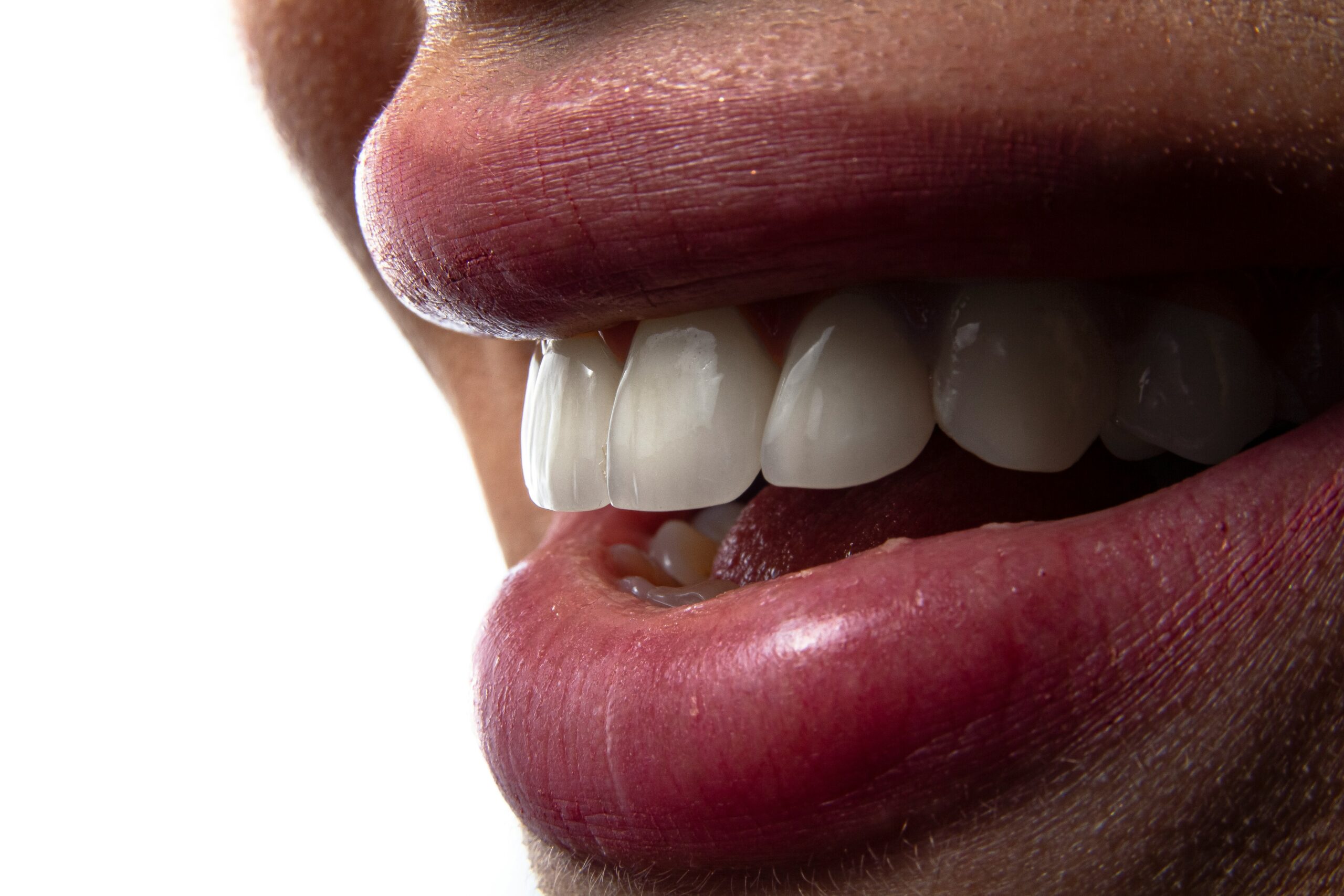A chipped tooth can be a source of discomfort and anxiety. It’s a common dental issue that can occur due to various reasons.
Dental wax offers a temporary solution. It can help manage the discomfort and protect the tooth from further damage.
This article aims to guide you on managing a chipped tooth using dental wax. It provides a step-by-step process on how to apply it effectively.
We’ll also delve into the importance of maintaining oral hygiene with a chipped tooth. Plus, we’ll share some dietary recommendations to prevent further damage.
Professional treatments and preventive measures will also be discussed. This will help you understand the long-term management of a chipped tooth.
Understanding a Chipped Tooth
A chipped tooth occurs when a part of your tooth breaks off. It can vary in severity, from minor chipping to major breaks.
Even a small chip can lead to discomfort and increased sensitivity. It’s crucial to address it quickly to prevent further complications.
The enamel is the hard, protective outer layer of the tooth. When this layer is compromised, the tooth becomes vulnerable.
Ignoring a chipped tooth can lead to more serious dental issues. It may expose the inner layers, making the tooth prone to infection.
Proper management and prompt treatment can save you from prolonged discomfort. Understanding the causes and solutions is essential for effective care.
Common Causes of Chipped Teeth
Chipped teeth are often caused by accidents or mishaps. Biting into something hard, like ice or unpopped popcorn, is a frequent cause.
Engaging in contact sports without a mouthguard can also lead to chipping. Sports injuries are a common reason people end up with chipped teeth.
Sometimes, even grinding your teeth can result in chipping. The constant pressure can weaken the enamel over time.
Weak enamel due to diet or genetics can make teeth more susceptible.
Immediate Actions to Take
If you chip a tooth, don’t panic. Instead, take swift action to minimise complications. Here’s what you can do immediately:
- Rinse your mouth gently with warm water to clean the area.
- Apply a cold compress to reduce any swelling.
- Find any broken pieces of the tooth to show your dentist.
- Use over-the-counter pain relievers if discomfort persists.
Handling the chip carefully will prevent further damage. Acting quickly can alleviate pain and prevent infection.
When to Seek Professional Dental Care
Not all chipped teeth require emergency treatment. However, knowing when to see a dentist is critical. If the chip is large or causing severe pain, immediate care is needed.
Sensitivity to hot or cold items can indicate nerve involvement. This is another signal to seek professional help.
Swelling or persistent bleeding should not be ignored. It might mean there’s deeper damage that needs attention.
Even minor chips can become more problematic over time. Timely professional evaluation ensures that your dental health is not compromised further.
The Role of Dental Wax in Managing a Chipped Tooth
Dental wax offers a temporary relief for a chipped tooth. It forms a protective barrier over the sharp or sensitive area. The wax reduces discomfort by cushioning the affected tooth.
Many people turn to dental wax as an immediate solution. Its ease of use and affordability make it a popular choice. While it’s not a permanent fix, it can provide significant comfort.
Dental wax can help prevent cuts or sores in your mouth caused by sharp edges. It acts as a smooth surface to protect your gums and cheeks. This can be particularly beneficial if a dental visit is not immediately possible.
However, it’s important to note that dental wax is only a short-term solution. Seeking professional dental advice is crucial for long-term care. A dentist can offer treatments that repair and restore your chipped tooth permanently.
Understanding how to use dental wax correctly is essential. Proper application can enhance its effectiveness and ensure better protection. Let’s look at what dental wax is and how it can help you.
What is Dental Wax?
Dental wax is a soft, pliable material designed for oral use. It’s made from a blend of natural or synthetic substances. This wax is safe to use inside your mouth.
Typically used in orthodontics, it provides relief from brace irritation. It can also be used to manage minor dental emergencies like chipped teeth.
Dental wax is easily moulded to fit over the jagged edges of a chipped tooth. It serves as an immediate, temporary protective measure. This helps alleviate discomfort until you can see a dentist.
Benefits of Using Dental Wax
Using dental wax provides multiple advantages for a chipped tooth. Firstly, it can quickly alleviate discomfort by covering sharp edges. This reduces the risk of injury to your soft oral tissues.
Moreover, dental wax can minimise sensitivity in the affected area. By shielding the exposed tooth, it helps in managing mild pain. This makes daily activities like eating and speaking more comfortable.
Another benefit is that it is easy to apply and remove. This makes it a convenient option for temporary dental care. It’s a simple yet effective tool until professional treatment is available.
How to Apply Dental Wax to a Chipped Tooth
Applying dental wax to a chipped tooth is straightforward. Follow these steps to ensure proper application and effective relief:
- Clean the Tooth: Rinse your mouth with warm water to clear debris. This helps the wax stick better and stay in place.
- Warm the Wax: Take a small piece and roll it between your fingers. The warmth from your hands softens the wax, making it pliable.
- Shape the Wax: Form a small ball or disc. It should be large enough to cover the chip, yet small enough to be unobtrusive in your mouth.
- Apply the Wax: Gently press the shaped wax over the chipped area. Ensure it covers any sharp edges and secures snugly.
- Adjust and Set: Use your fingers to smooth and mold it into place. Ensure it doesn’t interfere with your bite or cause discomfort.
The ease of application makes dental wax a convenient choice. However, remember to replace the wax regularly to maintain hygiene. It’s also crucial to not rely on it for long-term protection.
Always consult your dentist for a permanent solution. Proper dental care ensures that your teeth remain healthy and free from further damage.
Maintaining Oral Hygiene with a Chipped Tooth
Maintaining oral hygiene is crucial even with a chipped tooth. It helps prevent infection and further dental complications. Careful cleaning can help keep your mouth healthy while minimising discomfort.
Use a soft-bristled toothbrush and fluoride toothpaste. These tools will clean your teeth gently without irritating the chipped area. Brush around the chipped tooth with care to protect the surrounding gums.
Mouthwash can also be beneficial. An antiseptic rinse can help reduce bacteria and keep the mouth fresh. This step is an important addition to your dental hygiene routine.
Flossing is still necessary, but be gentle around the chipped tooth. Proper dental care will support healing and maintain overall oral health. By focusing on hygiene, you minimise potential issues while awaiting professional care.
Oral Hygiene Tips
Caring for your mouth is vital when managing a chipped tooth. Here are some tips to help maintain optimal oral hygiene:
- Brush Gently: Use a soft brush and fluoride toothpaste to clean teeth without irritation.
- Floss Carefully: Be gentle near the chipped tooth to prevent damage or discomfort.
- Use Mouthwash: Rinse with antiseptic mouthwash to reduce bacteria and freshen breath.
These practices will help avoid complications and maintain oral health. Proper hygiene keeps your mouth clean and reduces the risk of infection.
Dietary Recommendations
Diet plays a significant role in caring for a chipped tooth. Certain foods can aggravate the problem, while others support dental health. Being mindful of what you eat can prevent further damage.
Avoid hard or crunchy foods, as they can strain a chipped tooth. Opt for softer foods like cooked vegetables, pasta, and yogurt instead. These options are less likely to cause discomfort or exacerbate the chip.
Include calcium-rich foods in your diet to strengthen teeth. Dairy products, leafy greens, and almonds are excellent choices. A balanced diet aids in maintaining strong, healthy teeth.
By watching your diet, you can protect the chipped tooth from further stress. This mindful eating approach complements proper oral hygiene and dental care.
Long-Term Management and Prevention
Addressing a chipped tooth goes beyond immediate care. Long-term management is crucial for maintaining oral health. It involves professional treatment and preventive measures.
Ignoring a chipped tooth can lead to complications. These may include tooth decay, gum disease, and even tooth loss. Taking steps to manage and prevent such issues is vital for lasting dental health.
Adopting a prevention-focused approach can reduce future dental issues. This involves understanding what caused the chip and making lifestyle changes. It could be as simple as eliminating bad habits that harm teeth.
Incorporating professional advice into your routine also contributes to prevention. Regular dental visits allow for ongoing assessment and guidance. This proactive approach helps in managing current issues and preventing new ones.
Professional Treatments for a Chipped Tooth
A chipped tooth may require professional interventions to restore its integrity. Dentists offer several solutions based on the severity of the chip. Each treatment aims to protect the tooth and restore function.
Bonding is a common option for minor chips. Dentists use a resin that resembles tooth colour to repair the tooth. This method is quick and effective for small repairs.
Severe chips may necessitate crowns or veneers. Crowns cover the tooth, providing strength and protection. Veneers are thin shells placed on the front of teeth for aesthetic improvements.
In some cases, a root canal may be necessary. This treatment removes damaged nerve tissue when a chip exposes the tooth’s pulp. Professional treatments not only repair the tooth but also protect against future issues.
Preventing Future Chipped Teeth
Prevention is key to avoiding future dental issues. Simple lifestyle changes can drastically reduce the risk of chipping teeth again.
To help prevent chips:
- Wear Mouthguards: Use mouthguards during sports to protect teeth from injury.
- Avoid Hard Foods: Stay clear of hard candies and ice to minimise stress on teeth.
- Stop Teeth Grinding: Use a night guard if you grind your teeth while sleeping.
Making these changes can help safeguard your smile. Engaging in preventive care ensures healthier and stronger teeth over time.
The Importance of Regular Dental Check-Ups
Regular dental check-ups play a crucial role in maintaining oral health. These visits allow for the early identification of potential issues. Dentists can offer tailored advice to maintain strong and healthy teeth.
Check-ups provide an opportunity to discuss any concerns, including how to care for a chipped tooth. Dental professionals can assess the condition of teeth and gums, offering preventative advice.
Routine visits also keep professional treatments up to date. Issues like gum disease or cavities can be addressed before they escalate. Consistent monitoring through check-ups is an essential part of dental health.
Investing time in regular check-ups contributes to long-term well-being. They form a backbone for preventative dental care, ensuring teeth remain strong and resilient against future damage.
The Importance of Managing a Chipped Tooth
Managing a chipped tooth promptly is crucial for preserving dental health. Temporary solutions like dental wax can provide immediate relief. However, they should not replace professional evaluation and treatment.
Addressing a chipped tooth quickly helps prevent further damage. It also reduces the risk of complications such as decay or infection. Proper management ensures that teeth remain functional and healthy.
Taking preventive measures after treatment is equally important. Incorporating good habits and regular dental visits maintains oral health. Prioritising these steps ensures long-term wellbeing and a confident smile.
FAQs About Managing a Chipped Tooth
What causes a tooth to chip?
Teeth can chip due to trauma, chewing hard foods, or weakened enamel. Poor dental hygiene also plays a role.
How does dental wax help?
Dental wax covers sharp edges, reducing irritation and pain. It acts as a temporary shield until professional care is available.
Is dental wax safe for everyone?
Generally, yes, but those with allergies to certain materials should check first. Always follow packaging instructions and consult a professional if unsure.
When should I see a dentist?
Always seek dental attention to check the extent of the chip and what treatment is required. Professional evaluation ensures proper treatment
How can I prevent future chips?
Preventive measures include wearing mouthguards, avoiding hard foods, and addressing grinding issues. Regular check-ups support long-term dental health.








